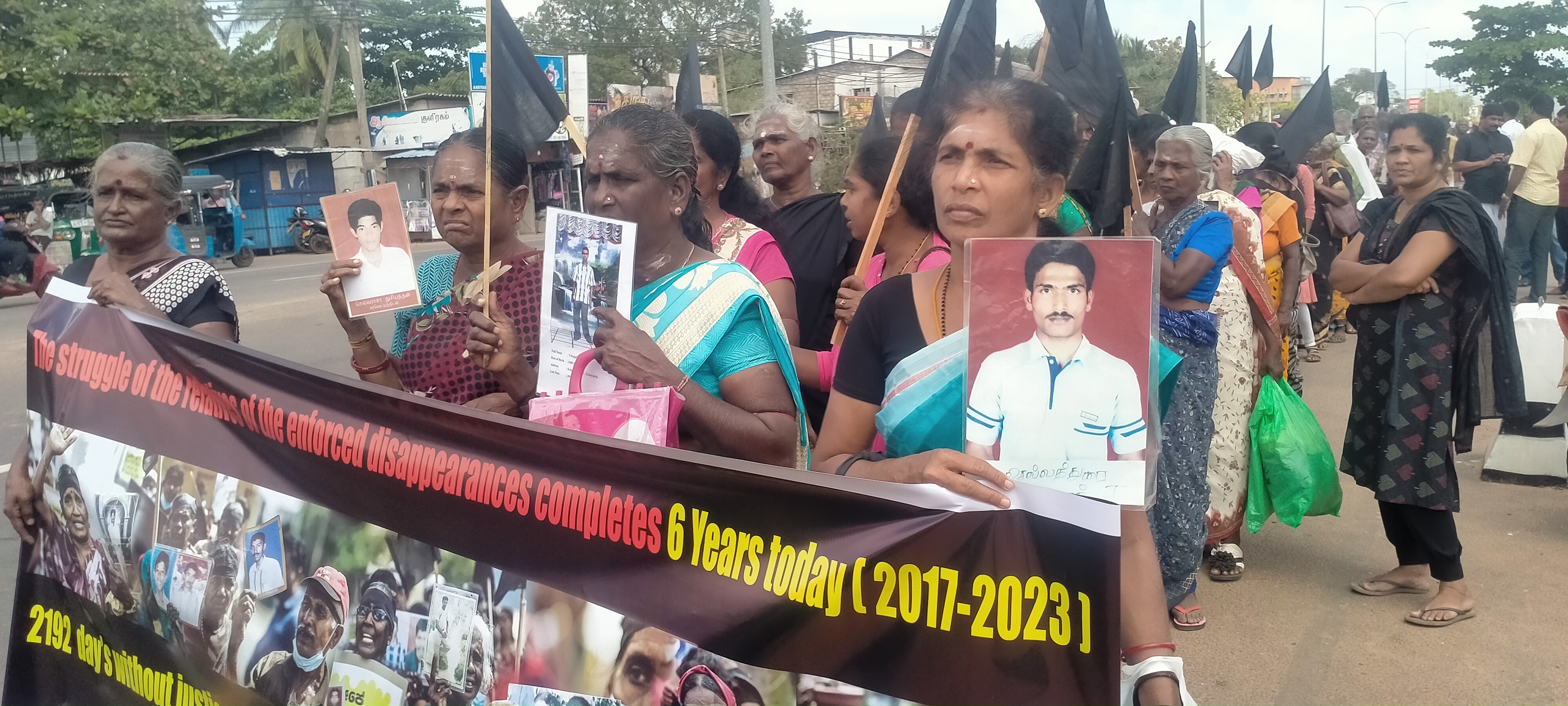
Concluding the 42nd Universal Period Review of human rights, the Council urged the Sri Lankan government to address issues affecting the North and East which included continued land grabs and missing persons.
The general statement notes:
“The Committee had identified issues to be addressed expeditiously, including developing a truth-seeking mechanism, drafting a new counter-terrorism law, establishing an office for overseas Sri Lankans, preparing a rapid development plan for the north and the east, and addressing matters related in particular to missing persons, resettlement and land”.
Prevention of Terrorism Act
The council statement comes as Germany’s ambassador to Sri Lanka and the Maldives, Holger Seubert, has warned that Sri Lanka’s continued failure to repeal the draconian Prevention of Terrorism Act (PTA) has placed the island at risk of losing its favourable trading preferences under the Generalised Scheme of Preference Plus (GSP+) agreement.
Since the legislation’s introduction in 1979, the act has been used by Sri Lanka’s security forces to disproportionately target Tamil and Muslim youth. It has been linked to accounts of torture, abductions, and extrajudicial killings.
Despite repeated promises from successive governments to repeal the legislation, it has remained unchanged.
Land grabs
The issue of land grabs was also highlighted by the UK’s representative, Simon Manley CMG, who called on the Sri Lankan government to, “address concerns around land expropriation in the North and East by government departments, including the Archaeological department, and related restrictions on access to land”.
In March 2021, the Oakland Institute released a report which detailed the extent of the military land grabs that noted in Mullaitivu alone, the military has “acquired more than 16,910 acres of public and private land” and has set up “at least seven Army camps and five naval bases located just 15 km from the village of Alampil to the village of Kokkilai in Mullaitivu”.
For years Tamils have protested against the continued seizure of their homeland by Sri Lanka's military and Archaeological Department under the pretext of preserving historical sites. Tamil MPs have decried these justifications as a ploy to steal traditional Tamil land.
Missing persons

The issue of “missing persons” also mass protests in Kilinochchi where Tamil Families of the Disappeared took to the streets to demand an account for their loved ones, many of whom were last seen in military custody.
The protest marked six years of continuous protest during which the government has failed to answer questions over the fate of their loved ones. The current president has previously remarked those who disappeared “were "most probably dead".
At least 125 family members of the disappeared who have been active in Tamil protests have died without knowing what happened to their loved ones. The Families of the Disappeared have made the following demands of the Sri Lankan government.
1. Release a list of surrendees from the final phase of the armed conflict;
2. Release the yearly lists of detainees under the Prevention of Terrorism Act (PTA) since 1978;
3. Investigate and release the list of all past and present secret detention centres.
Although the families have been subjected to intimidation, surveillance, and even violence by the state's forces, they have been relentless in campaigning for justice.
Read more here: Still no answers as Tamil families of the disappeared mark six years of protests
Sri Lanka’s response
Responding at the council, representatives of the Sri Lankan government maintained that domestic institutions for reconciliation and accountability in Sri Lanka continued to carry out their work towards achieving important post-conflict recovery and healing.
They also flagged their opposition to UNHRC resolution 51/1, which they maintained would polarise Sri Lankan society.
Read more here.
